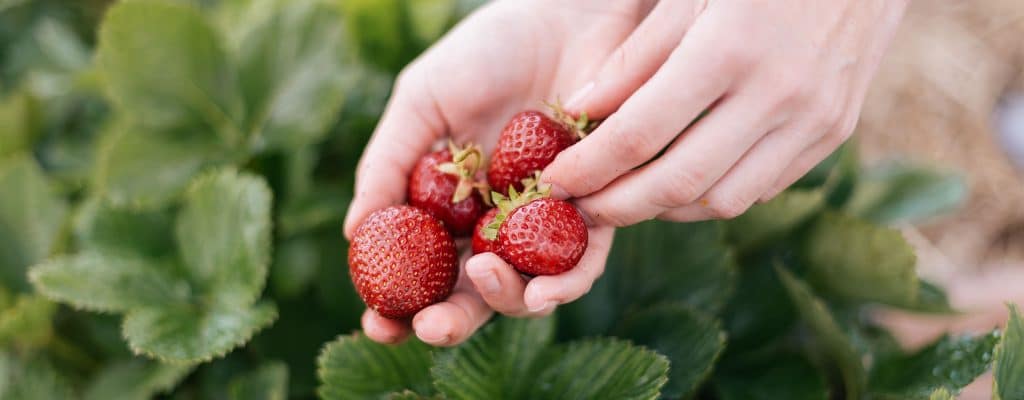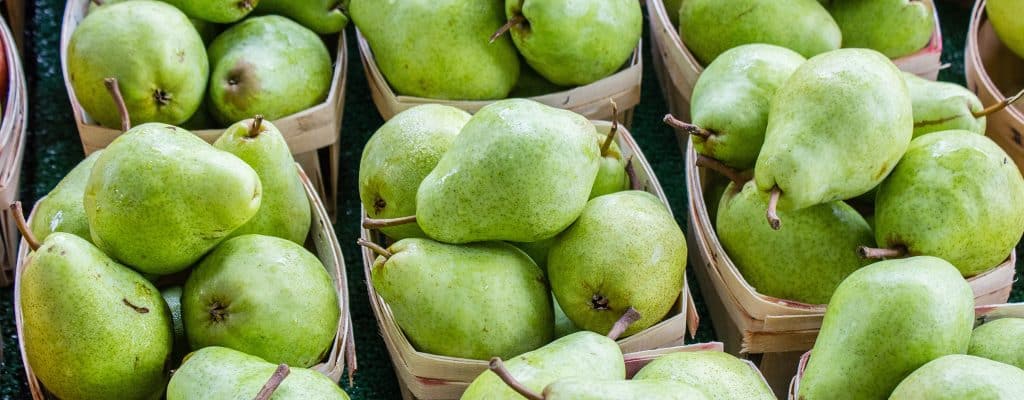At Kiju, we advocate for an organic diet as it can reduce pesticide exposure and encourage an overall healthier way of life. However, many feel overwhelmed when determining how to shift to an organic lifestyle and what foods are most important to buy organic.
We want to remove consumer confusion by helping you understand why organic food is essential and how to shop organic without breaking your budget.
What does “organic” actually mean?
Organic production is a farming system that maintains and restores soil fertility without hazardous synthetic fertilizers and pesticides. Organic farming can create a healthier ecosystem that improves biodiversity and promotes animal welfare while minimizing adverse environmental consequences.
Why buy organic food, and how to get started
All regulated and certified organic brands in Canada must undergo a rigorous process to use the organic certified label. The certification means organic foods cannot contain GMOs, artificial colours, growth hormones, antibiotics and other ingredients prohibited by the Canadian Organic Standards.
Buying organic may be better for us and the planet, but many Canadians need the means to live a 100% organic lifestyle. So, if budget and accessibility are a factor for you, here are five tips to help you get started:
- Focus on the foods you eat most frequently and gradually incorporate more organic options into your diet
- Prioritize swapping produce that is in season and local to avoid expensive import fees
- Expand your organic purchases by shopping in the health food aisle
- Stick to brands that you trust, like Kiju
- Learn to read labels and navigate the grocery store
You can also swap the heaviest sprayed fruits and vegetables for organic ones. The following list contains 12 fruits and vegetables to buy organic due to their high pesticide levels.
Here are 12 of the most important foods to start buying organic today:

1. Strawberries
Strawberries are one of the highest pesticide-contaminated foods and one of the easiest fruits to purchase organic. It’s easy to find organic strawberries with a similar price point in the produce section and the frozen foods aisle. You can also peek at Kiju’s Strawberry Watermelon Organic Juice if you are looking for a fresh fix and cannot find any organic strawberries at the supermarket.
2. Spinach
Spinach is also a heavily sprayed food, especially considering the weight you need to consume. We recommend looking for boxed or bagged organic spinach.
3. Apples
Due to apples’ thin peel, many pesticides sprayed on the farm can pass through to the flesh, making it a priority swap on our top 12 organic foods list. Finding organic apples is relatively easy, and you’ll often see bags on sale at the supermarket.
4. Peaches
Peaches have thin skin like apples, and pesticides can seep into the flesh. Though organic peaches aren’t as readily available as apples, you can purchase them from the frozen foods aisle at most Canadian supermarkets.

5. Pears
Pears are another Canadian fruit that contains heavy amounts of pesticides. Pears taste best when in season, so look for organic pears in the late spring and early summer months.
6. Bell and hot peppers
An everyday staple in our meals, organic bell and hot peppers can easily be found in the organic produce section and are often cost-effective. Another thing to remember when switching to this organic vegetable is to watch for Organic Certified canned goods that contain peppers, such as pasta sauce, salsa and frozen meals.
7. Green beans
Green beans are usually found in abundance when they are in season in Canada and are not readily available organic. Still, you can opt for washed and cut organic green beans, commonly found in bags in the grocery store.
8. Grapes
Most grape varieties contain a high level of pesticide residues and up to 5 different types of pesticides. Since organic grapes can be expensive, try buying them in bulk and freezing them for later.

9. Blueberries
In some cases, up to 17 different types of pesticides were found on blueberries when tested. Like grapes, organic blueberries can be expensive, especially when they aren’t in season. Try finding organic blueberries on sale and freezing them, or purchase frozen ones found in abundance in most grocery stores.
10. Cherries
Most cherry samples tested positive for pesticide residue. Though cherries are hard to find at the best of times, you can usually find organic cherries in the frozen food section.
11. Nectarines
Like cherries, organic nectarines are hard to find fresh but are readily available frozen and usually more cost-effective than fresh nectarines.
12. Kale, Collards & Mustard Greens
Kale, collard, and mustard greens contain high levels of pesticides, and many samples had traces of known carcinogens, making greens a high priority to purchase organic. Luckily, organic greens are readily available and have similar price points as their non-organic counterparts. You can find organic greens in the lettuce aisle or frozen.
Are there any fruits and vegetables you don’t need to buy organic?
The good news is that all your food doesn’t need to be organic, and if you want to start small, you can start with the top 12 organic fruits and vegetables listed above.
Plenty of fruits and vegetables contain lower levels of pesticides, such as avocados, corn, pineapple, asparagus, cabbage, mushrooms and sweet potatoes. So, buy organic fruits and vegetables when it fits your budget and lifestyle, stick to the foods listed above, and take it one day at a time.
How to wash fruits and vegetables and remove pesticides
Don’t forget, you can also remove the pesticides from your fruits and vegetables simply by washing them.
Once you return home from your grocery shop, create a baking soda solution with 1 tsp of baking soda and 2 cups of water and soak your produce for 15 minutes. Then rinse them under filtered water and pat dry.
Organic food for everyone and every budget
We understand many Canadians are navigating rising food costs and high living costs. With simple shifts, like buying in bulk, shopping seasonally and always shopping prepared, you can enjoy a healthy, organic lifestyle while sticking to your budget.
Always know the top fruits and vegetables to buy organic, what brands and products fit your budget, and have a purchasing plan for grocery shopping!
Choosing organic foods is a personal decision that can have far-reaching benefits for both your health and the planet’s health. Learn how to live your best organic lifestyle at Kiju.ca
